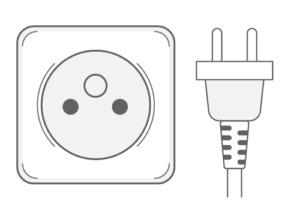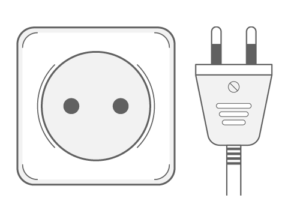Useful travel information
Entry requirements
An entry visa, valid for 45 days, is obtained on arrival at the airport and costs 30 euros. Payment is made in euros, cash (credit cards are not accepted and exact change is recommended). Children under 16 years of age will be issued a visa free of charge. You would need to present the following documents:
- Your passport with at least six months validity and at least 3 blank pages.
- A copy of your return ticket
- A copy of your hotel reservation or Adore Comores confirmed itinerary
- A negative PCR Covid-19 test result less than 72 hours old for travelers who are not fully vaccinated
- Completed Sanitary Traveller Form which can be downloaded here. The form is also available at the airport, but pre-filling the form before arrival will save you time
- A completed arrival form. Download the form here ,print and fill it in beforehand to ease with clearance on arrival.
Getting around
On the islands
There is no organized ground public transportation system on the islands. Most travel within the major cities is done by independent shared taxis. These are plentiful throughout the day but the number of taxis reduces in the evening. The prices are very affordable with a taxi ride anywhere in Moroni costing 300KMF, with fares of 350-500 KMF for trips to the outskirts or surrounding villages.
Minibusses operate longer trips around the island, with fares up to 1,000 KMF. These depart from different points in the city, depending on the destination. They do not operate on a fixed schedule but will depart once they fill up.
It is also possible to hire a car with or without a driver. Keep in mind that the roads are often in disrepair, there are few road or information signs of any kind, and that few villagers or police officers speak English. Renting a car without a driver is not recommended.
Between the islands
There are daily flights between Grande Comore and Anjouan, but flights to Mohéli only operate a few days per week. There are currently two domestic airlines operating: Int’Air Iles, and R Komor. Tickets for both airlines must be purchased in-person. Flight schedules often change, so it is advisable to reconfirm your flights often and allow ample margin for international connections.
Passenger boat service between the islands is very limited. SGTM operates a nice ferry between Moroni, Anjouan, and Mayotte, but not every day. There is no ferry service to Mohéli and most Comorians traveling between the islands travel in small, open fishing boats, called vedettes. These boats are often poorly maintained with no navigation or emergency equipment necessary for the 50 km open-ocean crossings between the islands. It is strongly recommended that international visitors do not use them.
Adore Comores would be happy to help you plan your domestic itinerary and assist you to purchase flight and ferry tickets, as required.
Currency
The currency of Comoros is the Comorian franc (KMF), which is tied to the euro (1 euro = 492KMF). You can pay for major items, such as accommodation, air tickets, and boat fares either in Comorian francs or euros. For smaller purchases, the local currency is usually required.
The best foreign currency to carry in Comoros is the euro, although some banks can change US dollars. There are a few ATMs in Moroni but they are not always reliable, so it is advisable to bring at least part of your money in euros cash.
There is limited acceptance of most international credit cards at larger establishments, with VISA being the most widely accepted.
Communication and Internet
There are two major telecommunications companies, Comores Telecom (under the Huri brand) and Telma. SIM cards with voice and data packages can be purchased in the offices of both companies. A passport is required to register your new phone line. Many informal retailers also sell credit refills.
4G/LTE internet connection is available from both providers throughout much of the country but service can vary depending on your provider and location.
The country code for Comoros is +269, followed by the 7-digit local number.
Safety and security
Comoros is a very safe and peaceful country with low levels of crime. Comorian people are very friendly and will go out of their way to help you. However, it is always advisable to take precautions against pick-pocketing. Valuables and important documents should be kept in a safe place.
Electricity
Comoros uses power outlets and plugs of types C & E (the normal European style) with a standard voltage of 220 V and a frequency of 50 Hz.
Power cuts happen from time to time, so carrying a power bank and a flashlight can be useful.


